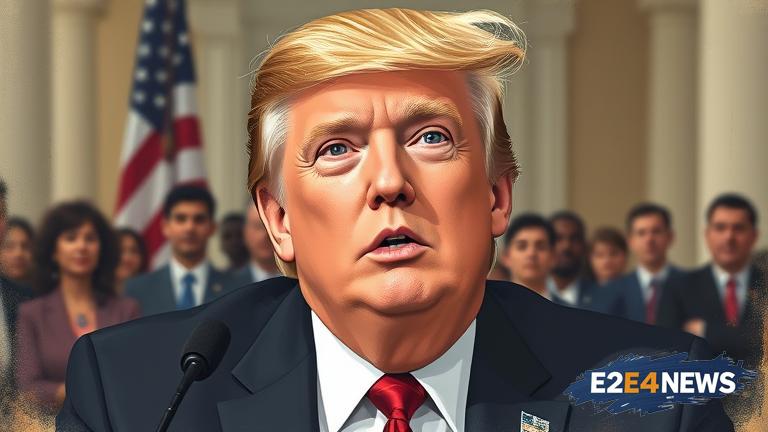The Trump administration’s decision to freeze education grants has sent shockwaves throughout the education sector, with many schools and students left wondering about the fate of their funding. The move, which was announced recently, has sparked controversy and debate among educators, lawmakers, and the public. According to reports, the freeze affects a range of education programs, including those that support low-income students, students with disabilities, and English language learners. The grants, which are administered by the US Department of Education, provide critical funding for schools to support student learning and achievement. The freeze has been met with criticism from educators and lawmakers, who argue that it will have a devastating impact on schools and students. Many have expressed concern that the freeze will lead to a reduction in services and support for vulnerable student populations. Others have argued that the move is a clear example of the administration’s lack of commitment to education and its priorities. The freeze has also sparked concerns about the impact on the economy, as education is a critical driver of economic growth and development. The administration has defended the move, citing the need to review and assess the effectiveness of the grant programs. However, many have questioned the timing and motivation behind the freeze, given the administration’s history of proposing deep cuts to education funding. The freeze has also raised questions about the role of the federal government in supporting education, and whether the administration is abandoning its responsibility to support schools and students. As the debate continues, many are left wondering about the long-term implications of the freeze and how it will affect the future of education in the US. The move has also sparked a wider conversation about the importance of education and the need for increased funding and support. Despite the controversy, many educators and lawmakers remain committed to fighting for increased funding and support for education. The freeze has also highlighted the need for greater transparency and accountability in the administration’s decision-making process. As the situation continues to unfold, many are calling for the administration to reconsider its decision and prioritize the needs of schools and students. The freeze has also raised concerns about the impact on teacher morale and retention, as well as the potential for a decline in student outcomes. The administration’s move has been seen as a clear example of its priorities, which many argue are out of touch with the needs and values of the American people. The controversy surrounding the freeze has also sparked a wider debate about the role of politics in education and the need for greater bipartisanship and cooperation. As the debate continues, many are left wondering about the future of education in the US and the impact of the administration’s policies on schools and students. The freeze has also highlighted the need for greater investment in education, particularly in areas such as early childhood education, special education, and career and technical education. Despite the challenges, many educators and lawmakers remain committed to fighting for increased funding and support for education, and to ensuring that all students have access to high-quality educational opportunities. The controversy surrounding the freeze has also sparked a wider conversation about the importance of education in driving economic growth and development, and the need for greater investment in education infrastructure. As the situation continues to unfold, many are calling for the administration to prioritize the needs of schools and students, and to work towards finding solutions that support the long-term success and prosperity of the US.
